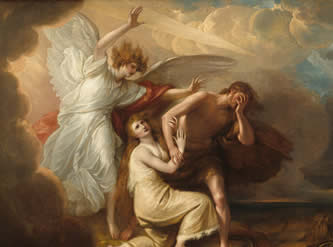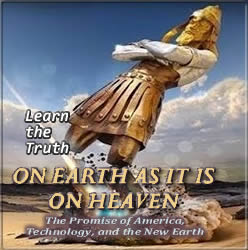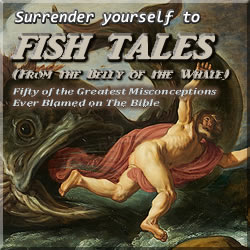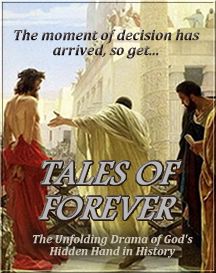A Tale of Two Worlds
Because Only Through the Fall Could We Know What It Means to Be Truly Human
Now that we’ve addressed how The Bible doesn’t depict a perfect world inhabited by perfect people, let’s see how Scripture reveals that this central fact of human existence doesn’t diminish the perfection of God as Creator of the Universe. That’s because without understanding why God was willing to unleash the more undesirable aspects of free will into the Universe, we can never appreciate why God continues to preserve and maintain free will despite the apparent liabilities that come with it, such as human suffering that inevitably leads to widespread cynicism. So the question remains: Just because The Bible demonstrates that God is faithful and that our Universe speaks of His control, how does this explain why evil was allowed to enter our world in the first place? In short: Just because God is in control and is faithful, it still doesn’t make up for the fact that He personally unleashed the ultimate monster—evil—upon an unsuspecting humanity. Whether that monster is seen in terms of death, Hell, and the grave, or darkness, sadness, and pain, the fact that God is to blame for the dire predicament we’re in—quite apart from Adam’s guilt in the whole debacle—undermines any of our bold pronouncements of “God is in control” and “God is faithful.” Such is the power of that dreaded archenemy of humanity, such is its power that no vision of divine beauty and grace can withstand its corrosive sting, such is the power of cynicism.
Story Continues Below
Says Richard Price—the founder and CEO of Academia.edu—on his podcast In Depth With Academia:
The Joy of Cynicism and the Death of Beauty: How Your Worldview Shapes the World You Live In is:
To hear Price’s book review of The Joy of Cynicism and the Death of Beauty, CLICK HERE.
To hear Kent and Zen Garcia talk about correcting biblical misconceptions, from September 9th, 2021, CLICK BELOW.
Story Continues From Above
Therefore, it’s with the utmost urgency that I attempt to deliver a deathblow to such a one as cynicism, an enemy of such magnitude that it alone can single-handedly undermine every valiant effort offered by way of the promises of God. How, then, do we answer the ultimate question on the lips of anyone who has ever asked such an obvious question? Why, in fact, would a loving and compassionate God allow evil to enter a world with such potential for hope, truth, and beauty? Quite simply, God did it because He knew that in creating divinely-constituted beings like ourselves, the one thing He couldn’t create—as a function of the God-like spark of free will—was both innocence and maturity at the same time in those beings from the start.
The only way to know what it means to be truly human—to be our “selves” in every sense of that word as opposed to the Great Other Who created us—we must experience firsthand the duality of God’s Universe. But in order to do that—and herein lies the rub—one can’t remain blissfully innocent forever. In other words, without being “cast out” of the womb of Eden, we’d never have known darkness, sadness, or pain, but ironically, without knowing any of these things, we’d never be able to realize our full potential as individuals made in God’s image. Because without knowing darkness, we could never appreciate light; without knowing sadness, we could never experience happiness; without knowing pain, we could never embrace pleasure. Simply put, to go through life without experiencing such dualities would be like never living at all.







